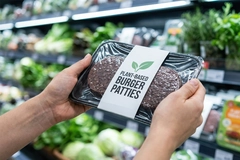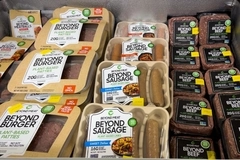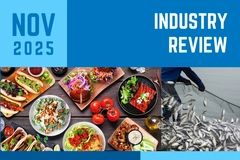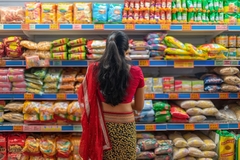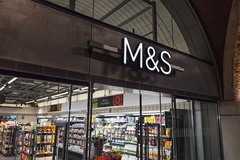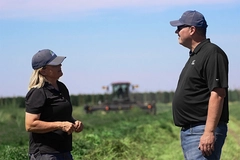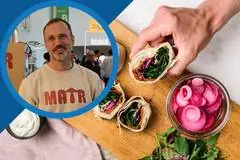
- Industry news
Industry news
- Category news
Category news
- Reports
- Key trends
- Multimedia
- Journal
- Events
- Suppliers
- Home
- Industry news
Industry news
- Category news
Category news
- Reports
- Key trends
- Multimedia
- Events
- Suppliers
Fi Europe Innovation Awards 2025: Sustainability finalists deliver measurable impacts
Key takeaways
- The Fi Europe Sustainability Innovation Award 2025 finalists are IFF, Saipol, ADM, and ofi.
- Sustainability is now a major competitive driver in F&B, with consumers prioritizing planetary health.
- The finalists’ initiatives focus on measurable impact across the value chain and supporting farmer livelihoods.
In this deep dive into the upcoming Fi Europe Innovation Awards, Food Ingredients First previews the Sustainability Innovation Award finalists. The celebration and awards ceremony will take place on Tuesday, December 2, in Paris, France.
This year’s finalists are: IFF (Choozit Lift cultures for sustainable cheese craft); Saipol (Empreinte low carbon oils); ADM (regenerative agriculture collaborations); and ofi (Cocoa Compass for enhanced traceability and transparency).
Environmental sustainability has become a central focus for the F&B industry. The rising awareness of climate impacts, concerns over food waste, and the desire for ethically sourced ingredients push companies to adopt greener practices. As a result, sustainability is now a compliance priority and a competitive advantage.
However, consumers increasingly demand that brands demonstrate genuine environmental responsibility. According to Innova Market Insights, almost half of global consumers see planetary health as the most pressing issue when purchasing F&B products. Just over half say they are willing to pay more for sustainable products that support global causes.
IFF: Choozit Lift cultures
Choozit Lift is a specialized culture designed to improve process efficiency in cheesemaking. It supports cost reduction, production optimization, and lower resource use. In semi-hard cheese production, curd washing requires significant water input and adds operational cost. Choozit Lift removes the need for this step, eliminating all of the water normally used for curd washing.
Andrea Leroux Páez, global marketing communications manager for Food Biosciences at IFF, explains: “Traditional semi-hard cheese production has a high water footprint, especially in the curd washing part of the process, where a substantial amount of water is added to the mix. This step is critical to control acidity and achieve the desired taste and texture, but it comes at a high cost, both financially and to the environment.”
“Choozit Lift was developed to address this challenge head-on. By combining specific bacterial strains that naturally reduce lactose levels, it enables cheesemakers to control the risk of post-acidification without curd washing, saving water, energy, and costs while maintaining the high quality consumers expect,” she tells Food Ingredients First.
With semi-hard cheeses, such as Gouda-style, representing nearly 30% of global industrial cheese production, Choozit Lift offers a scalable solution that benefits businesses and the planet. IFF says Choozit Lift is the first solution that completely eliminates the need for curd washing without compromising quality or requiring major process changes.
Saipol: Empreinte low-carbon oils
Saipol’s Empreinte product range, which includes vegetable oils, oilcakes, glycerine, and energy solutions, such as low-GHG Oleo100, is designed for industrial customers targeting sustainable agriculture. It offers a practical way to integrate decarbonized and sustainably sourced materials into supply chains.
“Empreinte by Saipol was born from this simple question: how can we apply our experience in certified, traceable low-carbon systems to the food industry? The challenge wasn’t technical but cultural: moving from compliance to conviction, refining methodologies, and turning carbon reduction into full-scale regeneration — for soils, biodiversity, and entire ecosystems,” Anne-Sophie Lesage, responsable communication externe at the company, tells us.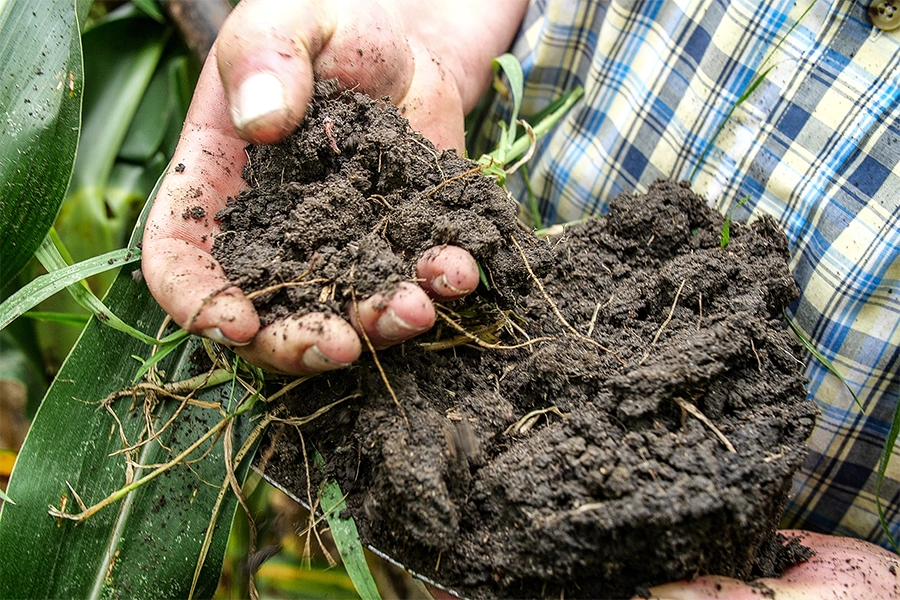 The food industry finalists push regenerative farming and traceable sourcing as consumer demand for real environmental impact accelerates.
The food industry finalists push regenerative farming and traceable sourcing as consumer demand for real environmental impact accelerates.
“Empreinte connects the field to the bottle through a certified mass-balance system that links farming practices to product sustainability. It’s not offsetting — it’s insetting: reducing emissions within our own value chain. By rewarding farmers for regenerative practices and offering third-party verified low-carbon oils to food manufacturers, we create value and integrity at every level.”
Saipol is scaling its solution fast. Fifteen seed suppliers and over 1,000 farmers are already engaged, with 1 million tons of regenerative seeds targeted by 2030 — about one-third of the company’s sourcing and over 15% of French production. Its goal is to extend its regenerative model across all oilseed co-products and inspire a shift toward a truly regenerative food system.
ADM: Regenerative agriculture collaborations
ADM’s European regenerative agriculture program, launched in 2023, provides financial and technical support to farmers implementing outcome-based practices that improve soil health and advance sustainability.
The program, which follows five core land-management principles, has already enrolled over 80,000 acres across key European crop regions and is expected to reach 160,000 acres by year-end. Globally, ADM’s regeneration program uses a farmer-centric model to strengthen supply chain resilience, enhance soil health, and support Scope 3 emissions reduction.
“Ensuring the right balance between customer expectations and farmer needs is crucial, but we must take care that farmers are not lost along the journey. Many feel overwhelmed by the wide range of available programs and struggle to identify which best fits their specific situation. This difficulty is compounded by the lack of clear guiding frameworks and the high program costs in Europe,” Candy Siekmann, director of Climate Smart Ag Origination at ADM, tells Food Ingredients First.
“Farmers value practical support, trusted guidance, and a clear sense of how new practices will benefit their operations. For example, the foundation of successful regenerative agriculture is solid agronomic advice and hands-on training. In Poland, a partnership with Biospheres provides a full training program, including on-farm assessments and regular sessions on sustainable farm economics and soil fertility. This effort encourages collaboration through field visits and peer-to-peer exchanges to build a practical support network.”
“Moreover, ADM is a central link within the value chain and connects our farmer partners with major global food companies. Across Europe and the US, partnerships with companies like Ooni, Mars, PepsiCo, and Lay’s are actively working to expand financial incentives and lower the barriers to adoption for farmers.”
ADM says it is committed to expanding its regenerative agriculture program globally, focusing on retaining participating growers and rolling out new initiatives in additional geographies.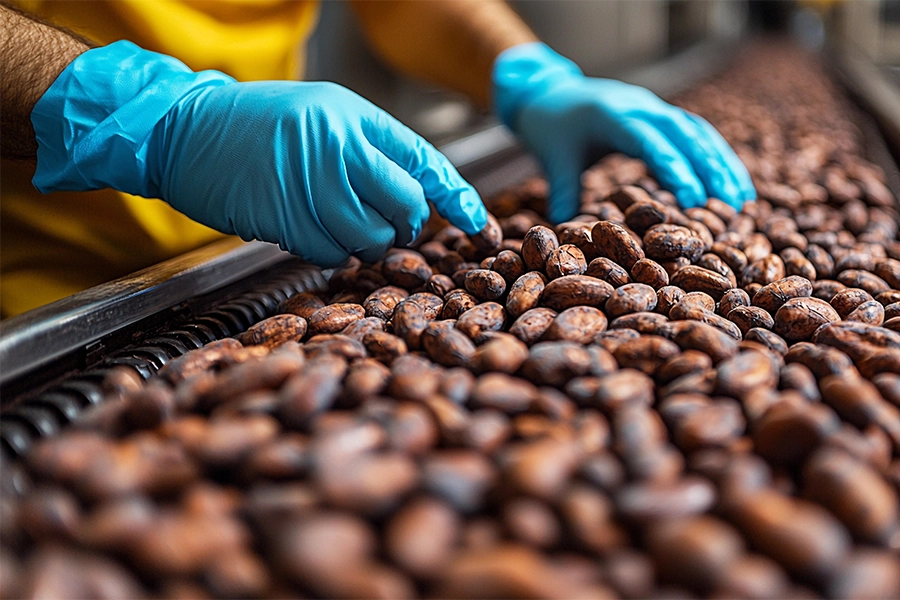 Sustainability leaders at Fi Europe 2025 spotlight innovations from low-carbon oils to water-saving cheese cultures and transparent cocoa supply chains.
Sustainability leaders at Fi Europe 2025 spotlight innovations from low-carbon oils to water-saving cheese cultures and transparent cocoa supply chains.
ofi: Cocoa Compass
Cocoa Compass supports enhanced traceability and transparency requirements for supply chain customers. The initiative leverages tools like the AtSource platform, a carbon stock monitoring and measurement tool, a carbon scenario planner, and a cocoa farmer income tool. These tools support deforestation monitoring, GHG impact modeling, and detailed origin data — aligning with regulatory drivers like the EU Deforestation Regulation.
“The granularity of our data, coupled with our extensive footprint on the ground in origin countries and strong relationships with farmers, means we can continue to move the needle with collaborators like the US Agency for International Development,” says Tejinder Singh Saraon, ofi Cocoa managing director and CEO.
“We’re also investing in technology to help some of the world’s biggest F&B brands meet the demand from their consumers for delicious, on-trend products with robust sustainability credentials. Although there are no easy solutions to the complex challenges facing cocoa farmers and the natural world, I’m proud of the impact we’re having together [through Cocoa Compass].”
The Cocoa Compass initiative, launched in 2019, defines ofi’s sustainability ambition for cocoa and sets challenging 2030 targets. According to 2022 data, the program has delivered measurable progress — over 30,000 farmers in the company’s cocoa supply chain were estimated to earn a living income at that time.
Yesterday, we examined the Dairy Alternative Innovation Award finalists: Ajinomoto Foods Europe, The Time Travelling Milkman, Lallemand Bio-Ingredients, and Lípidos Santiga.
